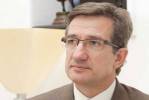What now? Donbas and Ukraine with the ‘special status law’
 Serhiy Taruta, Donetsk Governor feels that the citizens of Donbas have been sold out by the laws passed in a secret vote on Tuesday, while a constitutional expert points out that the law makes no mention of removal of Russian troops or restoration of the State border
Serhiy Taruta, Donetsk Governor feels that the citizens of Donbas have been sold out by the laws passed in a secret vote on Tuesday, while a constitutional expert points out that the law makes no mention of removal of Russian troops or restoration of the State borderSerhiy Taruta, Donetsk Governor is vocal in his opposition to the two draft laws passed by the Verkhovna Rada on Tuesday giving ‘special status’ to parts of Donbas, and an amnesty to the Kremlin-backed militants in control of parts of the Donetsk and Luhansk oblasts. He is not alone in his opposition, however it is not clear which MPs opposed the bills.
Two bills proved to be on the table on Tuesday: one on ‘special status’ for parts of Donbas and a form of self-government; the other offering a very wide amnesty to those involved in the conflict. President Petro Poroshenko arrived in parliament himself to lobby the bills, however the session which was also informed about the situation with the ‘anti-terrorist operation’ in eastern Ukraine was closed and journalists not permitted to attend. The same applied to the voting, with no list of those who voted one way or the other. Officially both bills gained an easy majority of over 270 votes.
It is probably true that, with parliamentary elections less than 6 weeks away, most MPs would not have wanted to be seen voting for the bills which aroused outrage, and street protest in the centre of Kyiv.
It is also undoubtedly true that it was not a move taken lightly by anybody, the President included. With Russia deploying an unknown number of soldiers and very considerable supplies of arms and military technology to prop up the militants, Ukraine had no chance of defeating them alone, and western countries’ support was essentially only verbal. Lives were being senselessly lost.
The laws are, however, a catastrophic blow for Ukraine, and for the large number of people in Donbas who have experienced only violence and lawlessness from the militants.
Serhiy Taruta says that he can’t begin to understand the point of the new laws and feels that they have been sold out by the government. At a press conference, he asked “Where are we, in Russia or Ukraine? What did we fight for? What did our lads die for?”
He is scathing about the law on special status and says that it fails to answer the most basic questions. What will this new creation be? Where are its boundaries? Will there be one Donetsk oblast or two, since only part of the oblast is in the control of the militants? What are the deadlines for laying down arms? What is meant by local elections when these will be held effectively at gunpoint. What laws will all the authorities be governed by? How will the justice system work and the law enforcement bodies? Are the so-called Donetsk and Luhansk people’s republics terrorist organizations or not?
Taruta said that the law had shocked him and warned that it would certainly not assuage the fears of people in areas liberated from the militants such as Mariupol.
Taruta’s concerns are similar to those expressed by Ihor Koliushko, Director of the Centre for Political and Legal Reform. For his criticism, as well as more detail about the laws, please see: No Limits to Russian Impunity?





